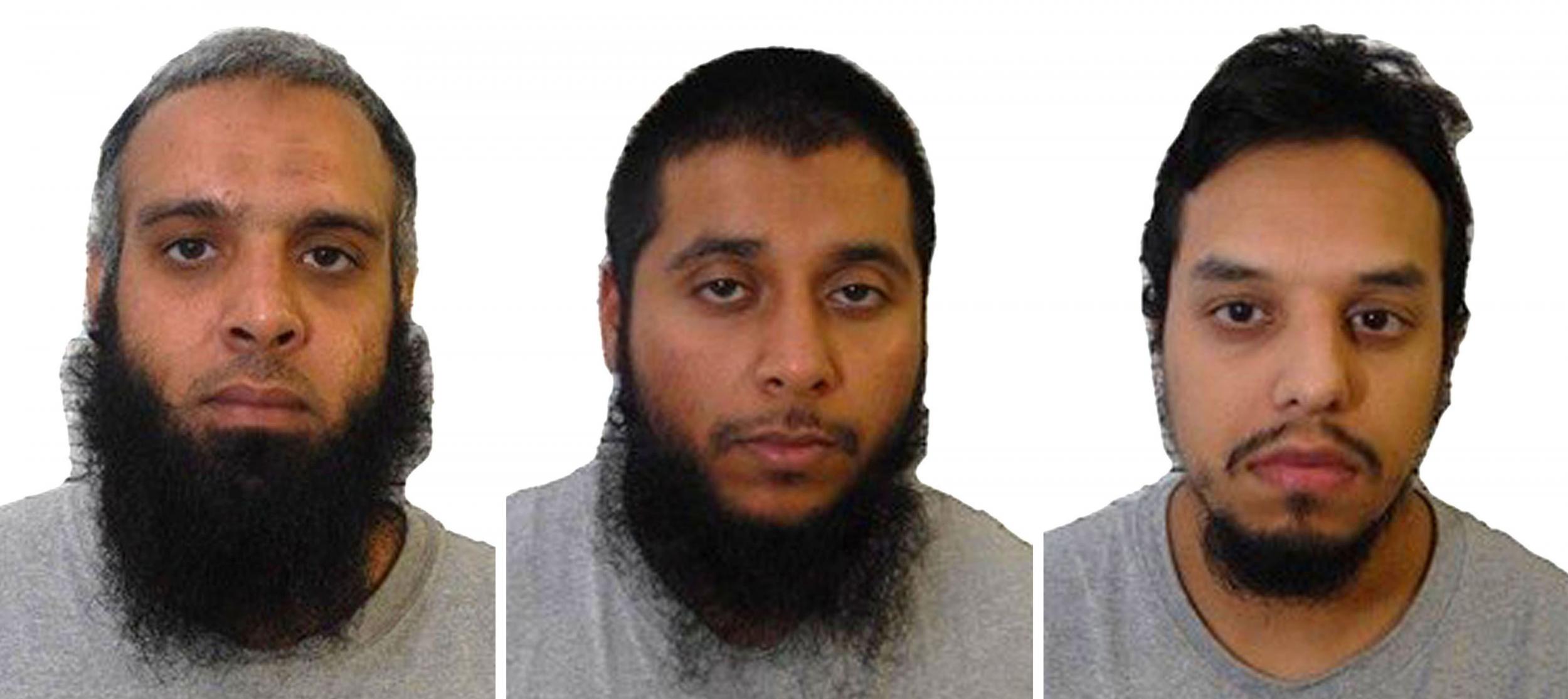Six extremists convicted of further terror offences after being released from prison since 2013
Official figures are published on eve of Commons vote on law to keep terrorists in jail for longer
Six convicted extremists have committed another terror offence after being released from prison since 2013, official figures show.
They make up 3 per cent of the total number of terror offenders (196) freed in the seven-year period, according to information released on the eve of a Commons vote on a law that would keep them prison for longer.
Lord Keen, the advocate general for Scotland, said the figure only covered offenders in England and Wales who were convicted for a further terror offence from January 2013 onwards.
“All those convicted of an offence under the Terrorism Act who have been released on probation are closely managed by the National Probation Service,” he added.
“HM Prisons and Probation Service works closely with law enforcement partners to share information and manage the risks that these offenders present in custody and on probation to reduce the risk of reoffending, and to support them to reintegrate into the community.”
The repeat offenders are believed to include a trio of plotters who called themselves the “Three Musketeers”, and an Islamist who was jailed twice in five years for spreading terrorist propaganda.
But the number only includes those formally prosecuted for a second time, rather than terrorists who remain under security service surveillance, or whose continued offending has not been detected.
Usman Khan and Sudesh Amman, who launched knife rampages after being freed from jail, are not among the six because they were shot dead during the attacks and no formal legal proceedings were launched.
The statistic also omits terror plotter Mohiussunnath Chowdhury, who was initially cleared of charges over his first attack at Buckingham Palace, and other extremists who were referred to Prevent rather than being prosecuted in the first instance.
Lord Anderson, the former Independent Reviewer of Terrorism Legislation, had requested the figure in the House of Lords.
He said that although recorded terrorist reoffending was very low, it was hard to assess the effectiveness of de-radicalisation schemes inside prisons.
“But the case for ending automatic release of terrorist prisoners is strengthened by recent atrocities, and the risk of copycat attacks,” he added.
The proposed law would prevent terror offenders on standard determinate sentences from being released automatically at the half-way point - as Khan and Amman were - and instead force the Parole Board to assess the risk they pose after serving two thirds of the term in jail.
Lord Anderson and his successor, Jonathan Hall QC, have both warned that the change risks creating a “cliff-edge” where the board refuses release until the end of a sentence and terrorists have to be freed without any licence restrictions.

The Ministry of Justice said it would ensure that released terrorists were “subject to robust safeguards”, which could include notification requirements, restrictions on travel and communications, and curfews.
Critics have warned of the potential security risk of keeping extremists in jail, where terrorist networking and radicalisation is rife.
There are about 224 terrorist prisoners but up to 800 flagged extremists, amid questions over de-radicalisation programmes and the closure of two of three flagship “separation centres” meant for radicalisers.
Chowdhury’s trial heard how he met fellow jihadis including the Parsons Green bomber at HMP Belmarsh, and an alleged terror attack was launched against prison officers inside a high-security jail last month.
Among the six terrorist prisoners who formally reoffended were the “Three Musketeers” cell, who planned a Lee Rigby-style massacre after meeting while in jail for supporting al-Qaeda.
Also believed to be included in the figure is a former London council worker who was jailed twice within five years for disseminating terrorist publications.
Khalid Baqa’s first sentence apparently did little to change his views, as he resumed spreading jihadi CDs and leaflets and was jailed again in July 2018.
The Terrorist Offenders (Restriction of Early Release) Bill was introduced to the House of Commons on Tuesday and will be debated by MPs on Wednesday.
Ministers moved to bring in the laws as an “emergency” after the Streatham attack and aim to pass the legislation before the next terror offender is due to be released from prison on 28 February.

